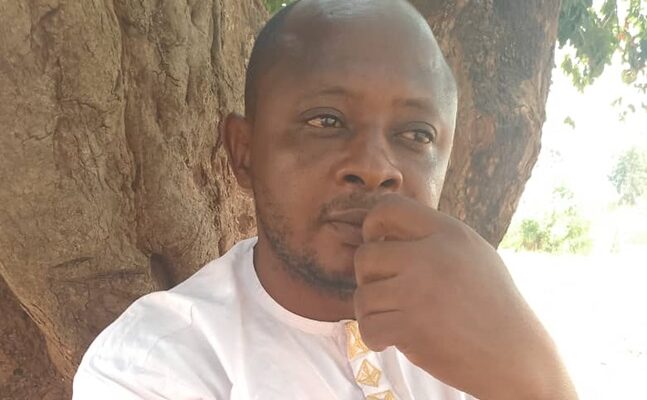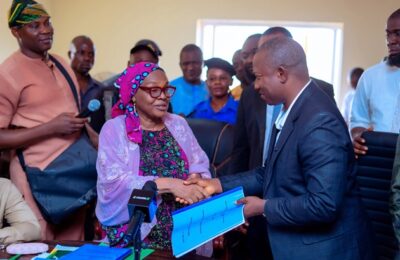The spirit moves before the pattern is recognized. In Igalaland, where rivers whisper ancestral secrets and hills echo forgotten chants, the present is a mirror of choices made in realms unseen. Political fragmentation, moral ambiguity, and spiritual neglect have shaped the contours of daily life, yet beneath the turbulence lies an immutable rhythm. This rhythm, long perceived by forebears, persists for those willing to discern it. Destiny in Igala is not merely legislated—it is inscribed in the soul of the land, vibrating through culture, faith, and memory.
Our forefathers, keenly aware of these recurring cycles, knew that betrayal and disunity were as intrinsic to Igala history as the Niger is to the land. Yet they were guided by the ancestral spirit, revealing divine counsel through Ifa. Attah Ayegba once pronounced, “A kingdom divided in heart cannot stand, but the wisdom of ancestors whispers the path to unity.” Today, that spiritual guidance is magnified by the Spirit of God Almighty, providing Igala people an extraordinary edge. This is not mere symbolism—it is an operational force, calling citizens to act with discernment, courage, and divine alignment.
Patterns emerge not as inevitabilities but as signposts. Elders, the living repositories of cultural memory, speak in proverbs encoding warnings and wisdom. “An age that forgets its fathers builds a future in sand,” they declare, reminding youth that neglecting ancestral guidance breeds societal erosion. The rhythm of allegiance, moral accountability, and social cohesion unfolds in marketplaces, courtyards, and riverside villages. It is a dance that requires both attentiveness and humility; only those attuned to spiritual currents can navigate its steps successfully.
Yet ambition often collides with insight. Igala politics has suffered decades of misaligned leadership, prioritizing personal gain over communal good. The consequences extend beyond governance into cultural erosion, weakened moral authority, and lost economic opportunities. External observers measure progress in infrastructure and election wins, yet the true barometer of Igala’s trajectory is the alignment of faith, ethics, and ancestral memory. As HRH Attah Ayegba reminds the people, “Power without conscience is a blade that wounds the very hand that wields it.”
Signs of destiny manifest subtly across society. Farmers observe shifting rain patterns, women preserve generational memory, and youth sense currents of migration and opportunity. These phenomena, often dismissed as coincidence, are in truth reflections of the land’s dialogue with its people. Ignoring them invites misfortune; embracing them brings foresight. Spiritual attunement, therefore, is not superstition—it is the lens through which history and future converge, guiding decisions that shape collective destiny.
Revival is not merely strategic; it is recognition of rhythm. Clergy, cultural custodians, and civic actors increasingly call for alignment between governance, morality, and tradition. Prophetic voices across faiths affirm that societal resilience is inseparable from spiritual clarity. For every misstep born of arrogance or ignorance, a countercurrent of hope emerges: enlightened youth, committed citizens, and leaders willing to heed both ancestral whispers and divine counsel. The land, once fragmented by discord, can yet be realigned under the guiding hand of God’s Spirit.
The Igala royal houses, custodians of heritage and tradition, underscore this urgency. HRH Princess Oloko, in a recent discourse, warned, “A crown is not merely ornament—it is responsibility; neglect it, and the kingdom suffers.” These royal admonitions remind all Igala people that authority, faith, and moral alignment are inseparable. As the Spirit of God now leads, there is a historic opportunity to surpass patterns that previously constrained the land, transforming betrayal into foresight, disunity into collective strength, and tradition into a framework for national influence.
Ultimately, Igalaland’s narrative is a negotiation between history and modernity, ambition and conscience, visible patterns and invisible spirit. The choice lies before the people: follow only the cycles of past betrayals or heed the Spirit of God, amplified by ancestral insight. In doing so, Igala can command victory, not through coercion but through alignment, courage, and faith. As the Niger flows and the land hums with ancestral memory, the question persists: will the people recognize the rhythm and let the Spirit lead? In that discernment lies the essence of destiny.
– Inah Boniface Ocholi writes from Ayah – Igalamela/Odolu LGA, Kogi state.
08152094428 (SMS Only)




